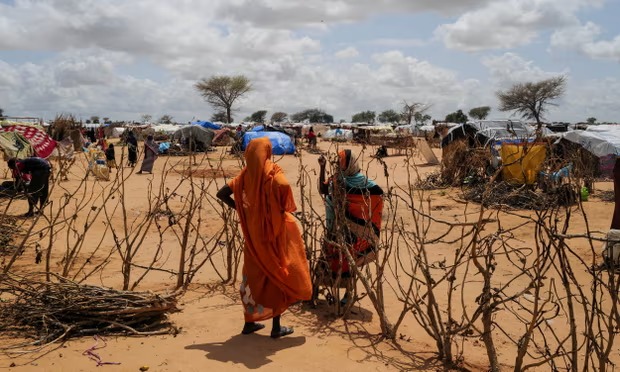The 78th United Nations General Assembly, which officially kicked off this week, was intended to be a beacon of hope for addressing the pressing social and economic development issues plaguing the global south. However, amidst the persistent global rifts caused by Russia’s invasion of Ukraine, the summit finds itself at a crossroads, with the fate of the world’s poorer countries hanging in the balance.
Sustainable Development Goals Under the Spotlight
The “high-level week” of the general assembly commenced with a two-day summit dedicated to the Sustainable Development Goals (SDGs). These 17 ambitious goals, established by UN member states in 2015, aimed at eradicating poverty, hunger, and improving healthcare and education worldwide by 2030. Shockingly, at the halfway point, progress has been lackluster, with only 12% of targets within reach. Nearly 100 million children still lack access to education, and the specter of poverty looms over half a billion people. This week’s summit serves as a vital opportunity to reinvigorate global efforts towards these essential objectives.
US Fights to Reassert Its Commitment to SDGs
Linda Thomas-Greenfield, the US envoy to the UN, passionately defended America’s dedication to the SDGs amidst accusations of “false narratives” from rivals who seek to exploit divisions. Thomas-Greenfield emphasized that the United States aims to dispel doubts about its commitment to these goals and demonstrate its unwavering support for the UN’s loftiest ideals.
Climate Ambitions and Global Governance on the Horizon
António Guterres, the UN Secretary-General, is set to host a climate ambition summit at a crucial juncture when the world’s efforts to limit global warming to 1.5 degrees Celsius, as stipulated in the 2015 Paris Agreement, are woefully inadequate. On another front, a ministerial meeting is scheduled to lay the groundwork for Guterres’ future summit, slated for the next year, with the aim of reshaping global governance to better address the planet’s growing threats.
Ukraine President Zelenskiy’s Bold Move
Perhaps the most anticipated moment of the week revolves around Ukrainian President Volodymyr Zelenskiy, who will address the General Assembly in person for the first time. As he takes the stage on Tuesday morning, he follows closely behind Brazilian President Luiz Inácio Lula da Silva and US President Joe Biden, traditional opening speakers. On Wednesday, Zelenskiy will address a security council meeting regarding the Ukraine conflict, which is also expected to be attended by Russian Foreign Minister Sergei Lavrov.
While a direct confrontation between the two leaders is not guaranteed, the risks are palpable. The G77 states are increasingly pressuring for a ceasefire, with almost a fifth of Ukrainian territory under occupation. Zelenskiy has been navigating a delicate strategy focused on pursuing a settlement based on the principles of the UN Charter, national sovereignty, and territorial integrity, echoing the values claimed by most UN member states.
Global Impact of Russian Aggression
The US and Ukraine, along with their allies, will underscore the adverse effects of Russian aggression on G77 countries. The collapse of the Black Sea grain initiative, initiated by Vladimir Putin’s withdrawal in July, had a direct and devastating impact on global food security. This move led to a surge in grain prices and hindered the World Food Programme’s capacity to feed vulnerable populations in impoverished countries.
However, experts remain skeptical about the possibility of pressuring Putin into reversing this decision, as Russia appears to perceive substantial benefits from the destruction of Ukraine’s agriculture sector and the ensuing disruption of European trade.
UN’s Precarious Position
The unraveling of the Black Sea grain initiative is a blow to the UN’s prestige, occurring as it struggles to maintain its status among a multitude of international groups with regional and common interests. Additionally, the absence of several global leaders, including Putin and China’s Xi Jinping, further underscores the challenges faced by the organization in its efforts to resolve conflicts, combat poverty, disease, famine, and tackle climate change effectively.















